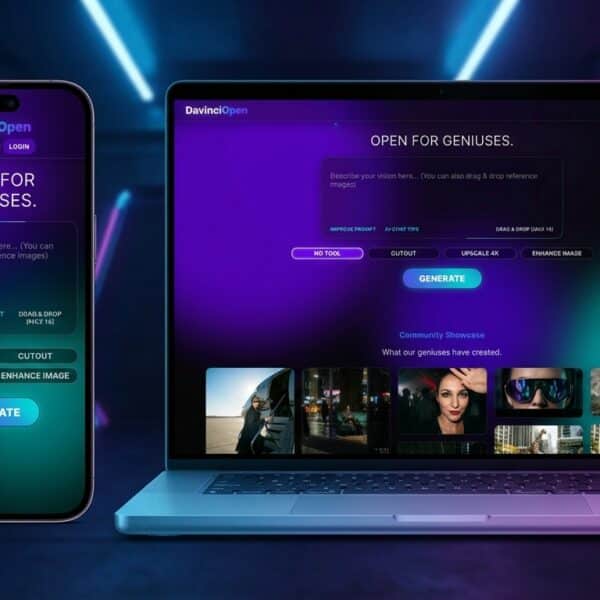In our quest to secure top-tier talent and streamline complex hiring processes, we actively monitor recruitment technology trends. This digital era positions hiring technology at the heart of talent acquisition strategies. As we navigate through this evolving landscape, our attention is fixed on the recruitment innovations reshaping HR’s future.
Our dedication to highlighting these advancements empowers HR professionals and hiring managers. They gain the insights necessary to refine their recruitment processes. We’re excited to present cutting-edge tools, from predictive algorithms to blockchain’s secure environments. These innovations are transforming how we recruit.
Key Takeaways
- Understanding the latest recruitment technology trends is crucial for competitive hiring practices.
- Implementing hiring technology leads to more efficient and effective candidate evaluations.
- Innovative recruitment innovations are key to optimizing the overall hiring process.
- Staying informed on tech advancements ensures better talent acquisition and retention.
- Adapting to new technologies positions organizations as leaders in HR transformation.
Embracing AI in Modern Recruiting Practices
AI’s role in recruitment is revolutionizing the field, pushing companies to adopt these advancements to remain competitive. It fundamentally changes our approach to candidate screening, enhancing the hiring process greatly.
How AI Streamlines the Candidate Screening Process
The initial hiring stages are greatly simplified with AI, automating the screening process. This technology can quickly sift through vast amounts of applications to find the best candidates using set criteria. It cuts down on the time spent reviewing resumes. At the same time, it improves the selection of qualified applicants.
The Role of AI in Enhancing Candidate Experience
Moreover, AI significantly improves the candidate experience with personalized communication and job matching. Candidates feel more valued, staying engaged through every step. This not only makes their journey smoother but also elevates their view of the organization.
AI-Powered Recruitment Chatbots
AI-driven recruitment chatbots offer instant interaction, answering questions and guiding through application and interview processes. They play a crucial role in keeping candidates informed and engaged, thus improving the overall recruitment experience.
| Feature | Benefit |
|---|---|
| Automated Resume Screening | Reduces time on candidate screening, enhances accuracy in candidate selection |
| Predictive Job Matching | Improves the relevance of job recommendations based on candidate profiles |
| Real-Time Candidate Assistance | Increases candidate engagement and satisfaction through timely support |
The Rise of Predictive Analytics in Hiring
As the talent acquisition landscape changes, predictive analytics is reshaping hiring across sectors. With historical data and advanced algorithms, firms can now make data-driven decisions. This radically improves recruitment’s predictability and quality.
Improving Quality of Hire with Data-Driven Decisions
Through predictive analytics in HR tech, companies can dissect large datasets from past hires and performance. This process highlights characteristics and skills that predict employee success. Using this knowledge, recruiters can refine their selection process. This leads to higher-quality hires that support company goals and culture.
The Impact of Analytics on Talent Acquisition Strategies
Predictive analytics transforms hiring from traditional to strategic. This allows teams to spot ideal candidates and foresee staffing needs and skills. It enables a shift from reactive to proactive hiring. Teams can address skill shortages and enhance group dynamics ahead of time. Businesses gain a workforce ready to meet future challenges and market changes.
Integrating data-driven hiring strategies enhances recruitment outcomes and fosters HR innovation. By embracing predictive analytics, companies streamline hiring. They also fuel enduring growth and competitiveness.
Mobile Recruitment Applications: Convenience Meets Talent
The digital landscape’s evolution has transformed our connection with job seekers. Mobile recruitment apps have made hiring faster and more accessible. Job seekers now prioritize efficiency and convenience, pushing companies towards mobile-first strategies. These platforms increase reach and improve interaction with tech-savvy candidates, supporting current recruitment trends.
Optimizing Job Applications for Mobile Users
With the shift towards mobile usage, optimizing job applications for mobile devices is critical. This means creating easy-to-navigate applications on smartphones. It’s essential to reduce the need for excessive scrolling and data entry, which is challenging on mobile devices. Making mobile application processes user-friendly is crucial for attracting today’s workforce, who favor mobile recruitment for its convenience.
The Significance of Mobile-First Strategies in Recruitment
Embracing mobile-first strategies in recruitment sets a benchmark for future practices. These strategies are vital for meeting the expectations of a workforce that relies on mobile devices for communication and information. Companies adopting mobile-first approaches see higher application rates. Candidates value the flexibility of interacting with employers at any time and place.
In the changing hiring landscape, the role of mobile recruitment applications is becoming increasingly critical. It’s about leveraging technology to lead in the recruitment arena. By pursuing a mobile-first recruitment strategy, companies adapt to today’s trends and prepare for the future of hiring.
Automated Candidate Sourcing Tools
In the realm of digital recruitment, utilizing automated sourcing tools is essential. They not just reach but effectively engage passive candidates. These tools lead in recruitment innovation by offering streamlined solutions. This enhances our recruitment pipelines significantly.
Leveraging Automation for Passive Candidate Outreach
We’ve greatly improved efficiency by incorporating automated sourcing tools into our strategies. They analyze extensive data to pinpoint ideal candidates who aren’t actively seeking jobs. Such an approach delivers a steady talent inflow, crucial for maintaining market competitiveness.

Enhanced Recruitment Pipelines Through Automation
Automation is pivotal in refining recruitment pipelines. It automates mundane tasks such as data entry and initial outreach. Hence, our team focuses more on meaningful candidate engagements. This transformation betters interaction quality and the candidate experience, turning interest into actual hires.
| Feature | Benefit |
|---|---|
| Automated Screening | Reduces time-to-hire by quickly identifying qualified applicants. |
| Data-Driven Insights | Enhances decision-making with analytics on candidate engagement and suitability. |
With more automated tools, we see vast potential in detailed insights for recruitment innovation. These technologies ease sourcing and elevate our strategy’s effectiveness. Hence, we stand as pioneers in advanced recruitment technology utilization.
Video Interviewing Technology: The New Normal
The landscape of recruitment has transformed with the rise of video interviewing technology. It’s a key part of current HR tech trends. Organizations are moving towards remote work structures, making video interviews crucial. They offer a range of benefits over traditional approaches.
Video interviewing breaks down geographical barriers. It allows companies to tap into a global talent pool without physical location limits. This capability not only broadens the recruitment reach but also reduces the travel costs and time significantly.
Video interviewing technology improves the recruitment process. It enables hiring teams to observe candidates’ non-verbal signals and communication prowess. Such insights are usually missed in phone screenings. They aid in making well-informed hiring decisions, enhancing recruitment strategies.
This technology is in line with current HR tech trends, propelling companies towards innovative, efficient, and adaptable hiring methods. Video interviewing is becoming vital in modernizing recruitment strategies. It’s shaping future hiring processes significantly.
Recruitment Technology Trends: Enhancing Diversity and Inclusion
Exploring the modern workforce complexities, enhancing diversity and inclusion is vital. Recruitment technology is essential, streamlining hiring and supporting a diverse workplace. It includes blind hiring tools. These tools aim to lessen unconscious bias and ensure equal chances for every candidate.
Tools for Blind Hiring and Reducing Unconscious Bias
Blind hiring tools are crucial for reducing recruitment biases. They hide certain applicant details. This ensures decisions are based on abilities, not background. Such methods are key to creating an inclusive environment where skill is paramount.
Measuring Diversity Goals with Recruitment Analytics
Recruitment analytics are vital for gauging diversity efforts. They analyze hiring data, tracking progress towards inclusivity targets. Adjustments are made based on this data, embedding inclusivity into actions, not just words. This data-driven approach informs recruitment decisions, adhering to diversity and inclusion commitments.
The use of advanced recruitment tech fosters a balanced, diverse workplace. Blind hiring and diversity metrics analysis are at the forefront of equal opportunity employment. Through tech integration, firms can achieve diversity objectives, shaping a workforce that mirrors diverse societal facets.
Blockchain’s Emerging Role in Recruitment
The recruitment landscape is evolving, with blockchain in recruitment playing a key role. It offers significant benefits, especially in securing candidate data and credential verification. This technology introduces a new level of transparency and security. It sets a foundation for trust and efficiency in the hiring process.
Securing Candidate Data with Blockchain
Blockchain technology revolutionizes the security of sensitive information in recruitment. It creates decentralized and tamper-proof ledgers. This ensures that candidate data is protected against unauthorized access and fraud. It thus enhances data integrity and security.
The Potential for Credential Verification via Blockchain
Credential verification can be lengthy and cumbersome. However, blockchain can simplify these tasks by providing immutable records of candidates’ histories. This accelerates the verification process and reduces the risk of fraudulent credentials. It maintains high recruitment standards.
| Feature | Benefits | Impact on Recruitment |
|---|---|---|
| Decentralization | Enhanced security, no single point of failure | Increases reliability in candidate data storage |
| Transparency | Activities are recorded and visible | Builds trust with candidates |
| Immutability | Records cannot be altered once confirmed | Ensures the authenticity of candidate credentials |
By leveraging blockchain for securing candidate data and credential verification, organizations protect themselves and reassure candidates. Their personal information is safe and handled with the highest integrity. Blockchain technology’s ongoing advancements continue to redefine recruitment’s possibilities. This presents an exciting future for recruiters and job seekers.
Integration of Recruitment Platforms and HR Systems
The collaboration between recruitment platforms and HR systems is transforming. It’s essential for effective talent acquisition and employee management. Integrating HR software seamlessly bridges the recruitment and employee development gap. This makes the human resources life cycle more efficient.
The Benefits of Seamless HR Software Integration
Integrating HR systems offers substantial advantages. It allows a unified database for all employee information. Centralizing data reduces errors and unnecessary administrative work. It also aligns with strategies focusing on data security and its easy access, keeping sensitive details safe.
Streamlining Onboarding with Integrated Technologies
Integrated onboarding technologies ensure a smooth start for new hires. From accepting an offer, the process begins efficiently. It signifies our valuation of their time and commitment. Such technologies prepare new team members for success, optimizing resource use and enhancing workplace culture for better retention.
FAQ
What are the latest recruitment technology trends?
Current trends highlight AI in candidate evaluation and predictive analytics for smarter hiring. Mobile recruiting apps and automated sourcing are gaining ground.
Video interviewing and blockchain for data security are also prominent. Emphasizing diversity and linking recruitment with HR systems have become essential.
How is AI transforming modern recruiting practices?
AI is making recruiting more efficient by enhancing candidate screening. It offers personalized interaction for a better candidate experience. Predictive job matching and AI-driven chatbots are now essential for engagement. Thus, it adds convenience and interactivity for applicants.
What is the impact of predictive analytics on hiring?
Predictive analytics empowers firms to decide based on evidence. It improves hiring quality by examining past data and outcomes. It refines talent acquisition and identifies skill and cultural fit gaps. This reduces turnover by advancing hiring strategies.
Why are mobile recruitment applications important?
Mobile recruitment apps cater to job seekers’ need for ease and access. They utilize smartphones’ widespread usage. Making job applications mobile-friendly offers a smooth process for users on-the-move. This is vital for attracting the best talent.
What are the benefits of automated candidate sourcing tools?
Automated tools efficiently find and engage passive candidates. They simplify time-intensive tasks. This lets recruiters concentrate on relationship building and keeping a strong pipeline. Overall, it improves the recruiting approach.
How have video interviewing technologies become the new normal?
The shift to remote work has made video interviews essential. They offer flexibility and remove location constraints. These tools also allow a closer look at non-verbal cues. Now, they’re a regular practice in recruitment.
How is recruitment technology enhancing diversity and inclusion?
Recruitment tech now features blind hiring tools to minimize bias. It also uses analytics for diversity goals. These methods promote fairer hiring and support a diverse, representative workforce.
What role does blockchain technology play in recruitment?
Blockchain secures candidate data and verifies credentials reliably. It cuts down fraud and increases trust in candidate info. This leads to safer, more efficient hiring processes.
What are the advantages of integrating recruitment platforms with HR systems?
Integration offers a smooth transition from candidate to employee, facilitating effective onboarding. It yields centralized data management, fewer admin tasks, and better communication. These aspects improve employee engagement and retention.


















































